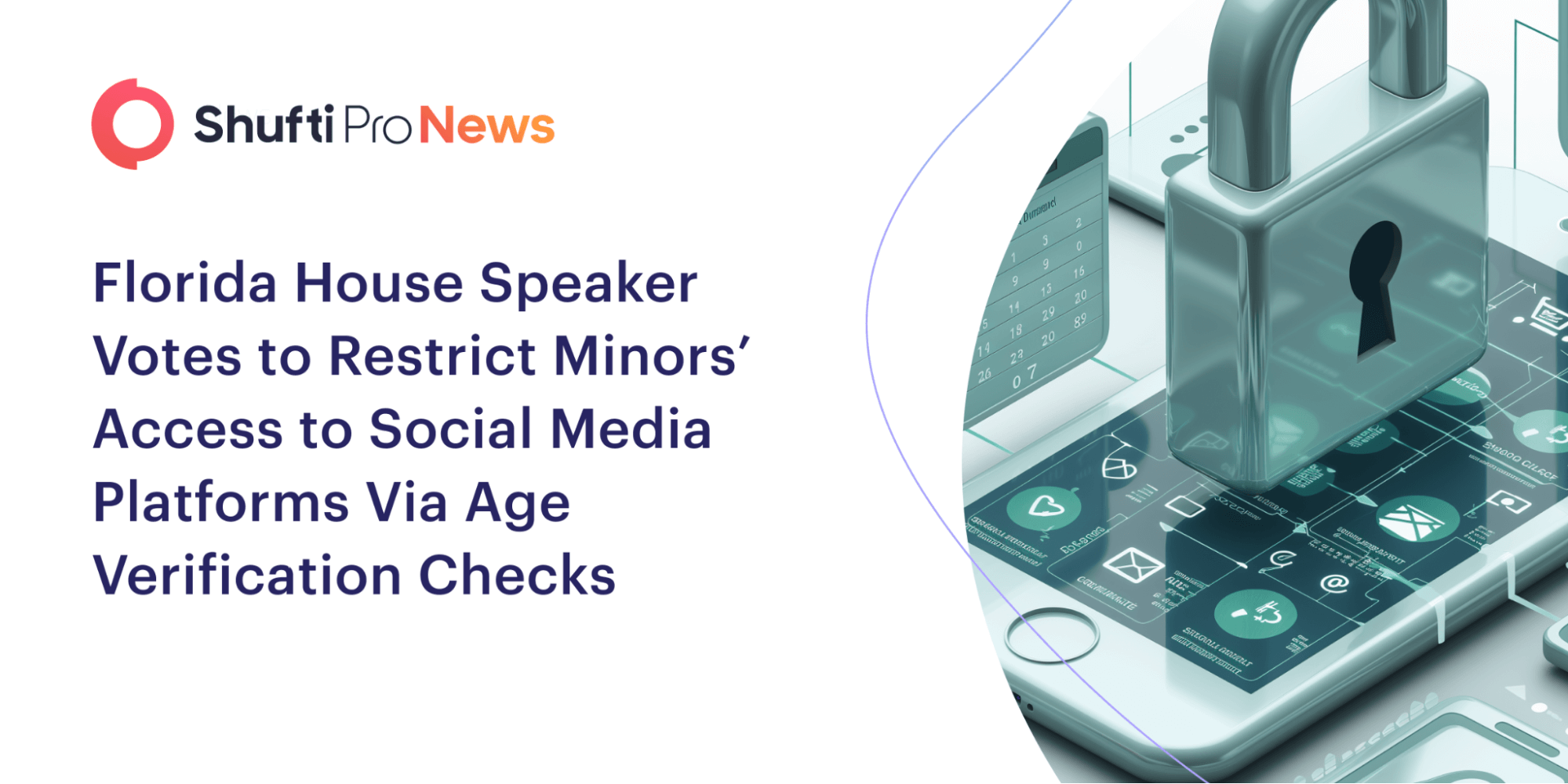Florida House Speaker Votes to Restrict Minors’ Access to Social Media Platforms Via Age Verification Checks

Florida House votes to mandate social media platforms to implement rigid age verification checks, aiming to protect our youth from digital exploitation.
Florida House Speaker, Paul Renner, publicly thanked the U.S. Senate Committee for a hearing in which the federal law legislating bodies questioned social media CEOs about raising concerns about minor exploitation and harm on their platforms.
The Palm Coast Republican wrote in a Thursday letter to the U.S. Senate Judiciary Committee, saying, “I write to express my sincere gratitude for bringing social media executives forward to confront essential matters related to the addictive nature of their platforms and the harmful effects they are having on America’s children.”
In this committee, Mark Zuckerberg, Meta CEO, stood and faced families who have blamed Facebook and Instagram for harming their children. Mark apologized, vowing to “continue doing industry-leading efforts to make sure no one has to go through the things your families have had to suffer.”
However, Renner’s letter went beyond this. He told U.S. senators, “I urge you to support common-sense age verification for social media companies.” In addition, while speaking to reporters after the Florida House Adjourned, he resembled Meta’s hearing with the tobacco companies testifying before Congress in 1994, stating that nicotine was not addictive.
“I applaud both Democrats and Republicans on the Senate Judiciary Committee for taking up the charge that we’ve taken up here,” Renner said.
Setting an age verification policy for social media platforms is one of Renner’s priorities for the 2024 legislative session. He promised to mention it in his letter, drafted less than a week after Gov. Ron DeSantis’s concerns that this measure may create legal issues. In this wake, the Florida House passed a law last week, imposing a ban on minors – younger than 16 from accessing social media platforms while mandating such platforms to have age verification checks.
“These companies know they are causing significant harm to our children, yet their proposed solutions are merely window dressing to give parents a false sense of security,” Renner wrote. According to him, the HB 1 bill must be passed by the Senate before being sent to DeSantis, who says he requires changes.
The Governor also stated, “I want to empower parents. I want to give them tools to do this, so I just think you have to be smart with how you do it.” Unlike Florida, other states have also emerged with age verification laws, but they have clauses for parental rights exceptions, which HB 1 lacks. However, those clauses have not been enough to secure parents from legal challenges.
For instance, a federal judge has temporarily blocked a 2023 law in Arkansas regarding First Amendment concerns. The same happened this month for a new Ohio Law. however, Renner has said that he believes it is legally correct since it doesn’t go after individual companies but platforms that use “addictive, harmful, or deceptive design features, or any other feature that is designed to cause an account holder to have an excessive or compulsive need to use or engage with the social media platform.”
He also said that the House has been working with the Governor’s office and the Senate to finalize the bill while making it strong enough to survive legal challenges.
“Our bill is in a unique position that this is a better effort than previous state efforts,” he said. “We have some confidence that we will succeed once a challenge is brought.”
Suggested Read:
Louisiana Approves First Regulation Requiring Age Verification to Access Pornography Sites
Instagram is Adding Age Verification to Protect Minors
Pinterest Enhances Age Verification Measures to Protect Users Under 16

 Explore Now
Explore Now













